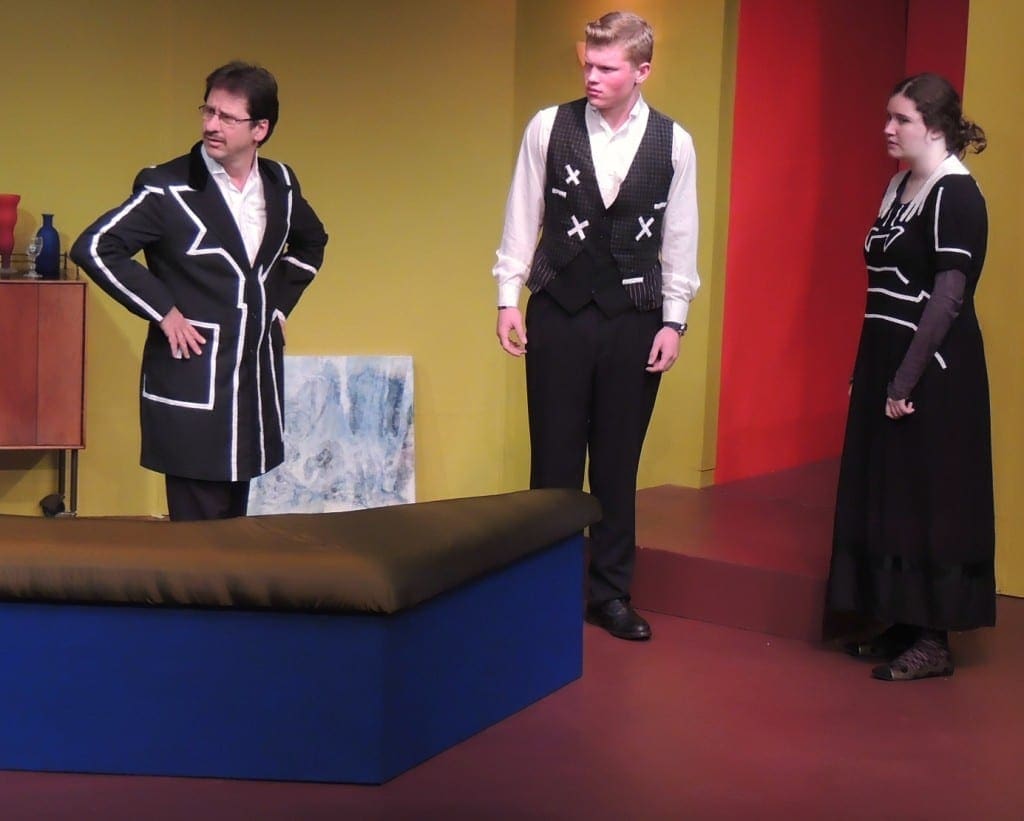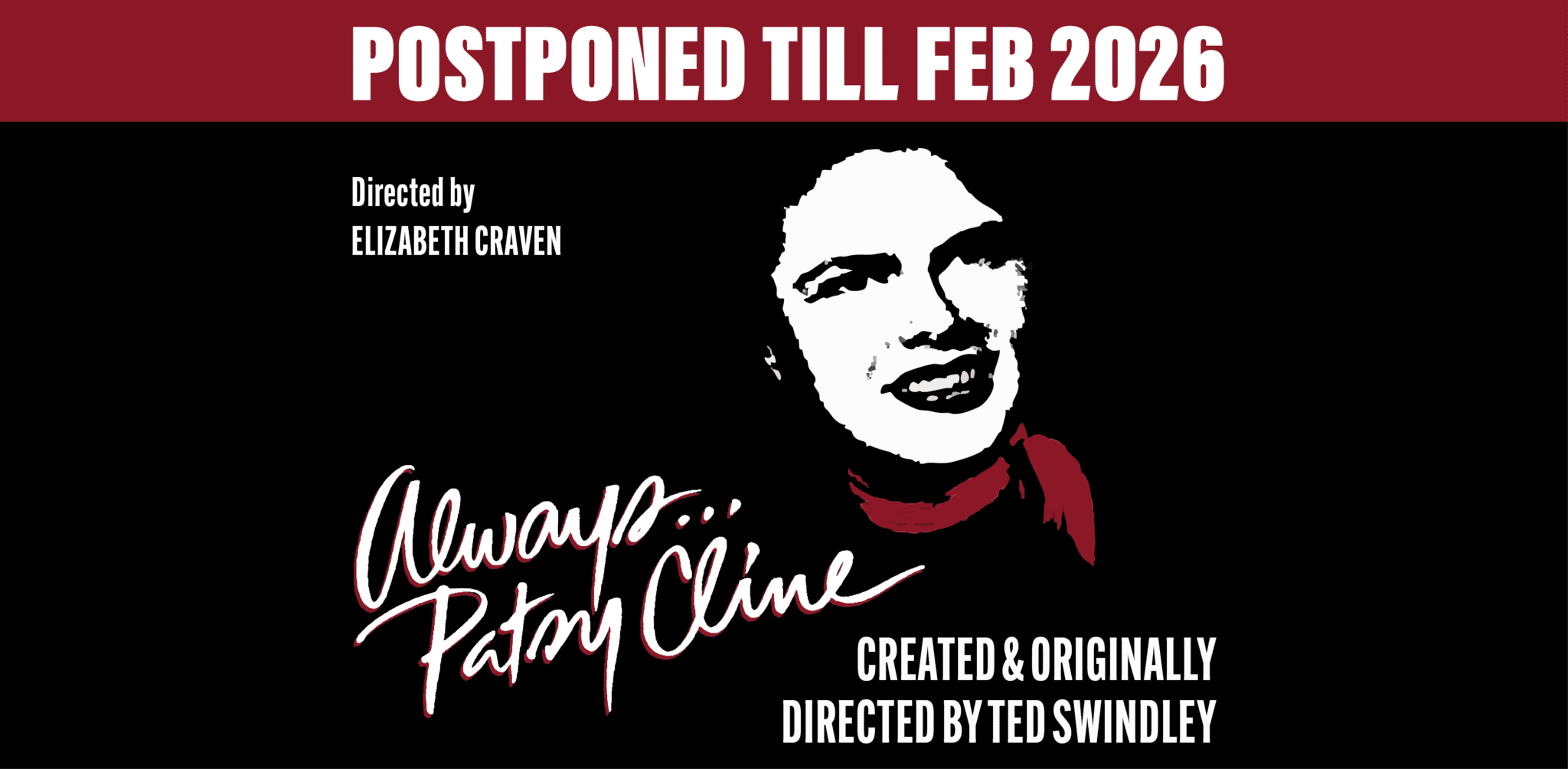Review of AN INSPECTOR CALLS
Originally published in the Mendocino Beacon.
Reprinted with permission from the author.
by Eleanor Cooney
What would your conscience look like if it were to manifest as a living being and come knocking on your door in the dark? Mine would likely slither and have tentacles.
For a certain upper-crust British family in 1912, the early Downton Abbey era, when war, influenza and societal revolution were in the wind and the Titanic was soon to set sail, the uninvited visitor arrives in the form of a police inspector, appearing one evening just after the servants have cleared the dishes of a dinner celebrating the head of the household’s impending knighthood and the empire-building engagement of the daughter of the family, and turns their insular world of privilege and cozy self-satisfaction upside down and inside out. He is a commanding presence, suitably trench-coated, terse and gimlet-eyed, unimpressed by the family’s lofty status and not obeying the customary protocol of deference. Why, anyone would think he believes himself their equal, if not their superior.
A young local woman, Inspector Goole (played by Bob Cohen in the MTC production) tells Mr. and Mrs. Birling (Raven Deerwater and Lorry LePaule), their grown children Eric (Nicholas Barrett) and Sheila (Lily Fernandez) and Sheila’s fiancé, Gerald (Patrick Gomes), has committed suicide by drinking “disinfectant.” As he questions and confronts each member of the family, portraits emerge: of the young woman, Eva, herself—working-class, pretty, down on her luck, desperate—and of the various family members as a web of secrets and lies are revealed under Goole’s forceful probing. In each case, a family member has abused, to a greater or lesser extent and in an interlocking way that unravels their relations with one another, the class disparity between themselves and Eva. Each, it seems, has contributed to her despair and death. Before us is a perfect miniature model of the rigid, merciless social-safety-netless caste-system-afflicted “good old days” to which many among us yearn to return. We hear, in the snappy dialog, recognizable old-time versions of modern sexist, racist, classist, anti-socialist, anti-worker dog-whistle code (it’s a delicious happenstance that one of the grown sons is named Eric). Moving like a deferential shadow among them is Edna, the maid (Candy Cole), their in-house exploited worker.
The Inspector’s interrogation penetrates to each family member’s latent humanity, which flickers in and out like an intermittent radio signal between reflexive spasms of self-justification. The signal is strongest and steadiest, though, in the youngest ones, a portent of the tectonically changing times lying just ahead.
Director Dan Kozloff puts it exactly right in his program notes when he says there’s a Twilight Zone twist toward the end; you expect to see Rod Serling under a streetlamp smoking a philosophical cigarette.
Under Kozloff’s direction, the 1945 J.B. Priestly classic is presented in visual abstracts, from the distinctly non-Edwardian, candy-colored, minimalist set to the mysterious black-and-white costumes that might have leapt off a Tim Burton rack.
“An Inspector Calls” runs through Dec. 11. For tickets or more information contact the box office at 707- 937-4477 or go to mendocinotheatre.org/.










